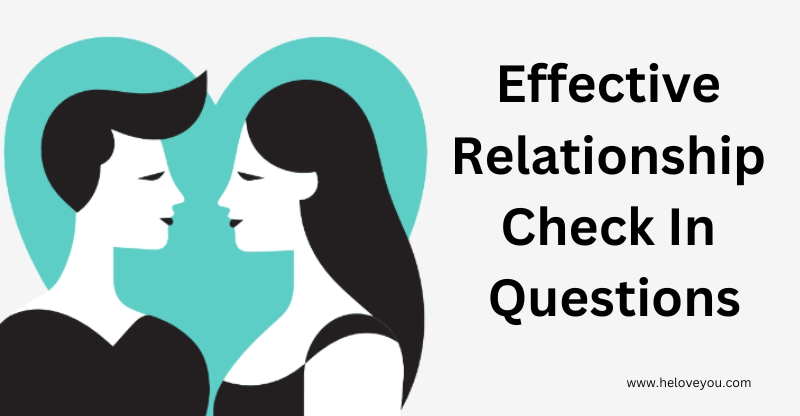Ideal Society is a commonplace or stereotype in our daily life, even though, we can’t learn this work from our textbook. When people ask you what kind of society you want to live in, the most common answer is Utopia with a smile. It was said it was an ideal society in the past, and most intellectuals fought hard for it with one lifetime. But as yet, no one has lived in it. At the same time, there are a lot of ideas in our daily life, such as socialist, capitalist, monarchical, democratic, anarchist, ecological, feminist, patriarchal, egalitarian, hierarchical, racist, left-wing, right-wing, reformist, and so on, and most of them have some connections. Compared to the above ideas, utopianism is essential for the improvement of the human condition. Of course, it also has its drawbacks. Some people say utopia has an inherent contradictory nature. If we use it in the wrong way, it becomes dangerous. As time goes on, people create utopia to replace the ideal society.
First, I introduce where this word came from. It was coined by Mr. Thomas More for his 1516 book Utopia, describing a fictional island society in the new World. However, it may also denote an international community. In his original work, more carefully pointed out the similarity of the world to utopia, meaning a good place, from Greek which ostensibly would be the more appropriate term for the concept in modern English. In 1876, the writer Charles Renouvier was from Frech published a novel called Uchronia instead of topos. From this time on, people use it to describe a non-existent idealized society. You can watch some films about it such as Philip Rothe’s The Plot Against America (2004) and Philip K. Dick’s The Man In the High Castle(1962). Moreover, some people say this phrase was from Socrates. He once visited such an island near Greek and saw people living in a fairytale-like world. In the end, this island sank into the sea. In China, there was a place that is described as a utopia. Datong, the main description of it is found in the Chinese classic of rites, in the chapter called Li Yun. Later, Datong and its ideal of the world belong to everyone or the world is held in common. Kang Youwei was influenced by it and became a modern Chinese reformer and revolutionary. So, every country has a similar word for it.
Furthermore, the Bible also mentions it. The Lord God planted a garden eastward in Eden, and there he put the man he had formed. Out of the ground made the Lord God grow every tree that is pleasant to the sight and good for food. The tree of life is also in the midst of the garden. And the Lord God took the man and put him into the garden of Eden to dress it and to keep it. He commanded the man, saying, Of every tree of the garden thou mayest freely eat: but of the tree of the knowledge of good and evil, thou shalt not eat of it: for in the day that thou eatest thereof thou shalt surely die. He said it is not good that the man should be alone. The Lord God caused a deep sleep to fall upon Adam, and he slept: and he took one of his ribs and closed up the flesh instead thereof and the rib, which the Lord God had taken from man, made he a woman and brought her unto the man.
Second, let me explain its definition. A utopia typically describes an imaginary community or society that possesses highly desirable or nearly perfect qualities for its members. Most dictionaries associate utopia with ideal commonwealths, which they characterize as an empirical realization of an ideal life in an ideal society. Let us see what these celebrities explain. Utopias, especially social utopias, are associated with the idea of social justice.” — Lukáš Perný. Oscar Wilde said a map of the world that does not include Utopia is not worth even glancing at, for it leaves out the one country at which humanity is always landing. When Humanity lands there It looks out and sees a better country-sets sail. Progress is the realization of Utopias. Alexander Hamiton said a man must be far gone in Utopian speculations who can seriously doubt that if these United States should either be wholly disunited or only united in partial confederacies, the subdivisions into which they might be thrown would have frequent and violent contests with each other. Utopias and other models of government, based on the public good, maybe inconceivable because of the disordered human passions which under the wrong governments, seek to highlight the poorly conceived or selfish interest of the community. But even though we find it impossible, they are ridiculous to sinful people whose sense of self-destruction prevents them from believing. Utopism was a common type of thinking at the dawn of human civilization. We find Utopian beliefs in the oldest religious imaginations, and appear regularly in the neighborhood of ancient, yet pre-philosophical views on the causes and meaning of natural events, the purpose of creation, the path of good and evil, happiness and misfortune, fairy tales, and legends later inspired by poetry and philosophy. The underlying motives on which utopian literature is built are as old as the entire historical epoch of human history.
Moreover, In many cultures, societies, and religions, there is some myth or memory of a distant past when humankind lived in a primitive and simple state but at the same time one of perfect happiness and fulfillment. In those days, the various myths tell us, there was an instinctive harmony between humanity and nature. People’s needs were few, and their desires were limited. Both were easily satisfied by the abundance provided by nature. Accordingly, there were no motives whatsoever for war or oppression. Nor was there any need for hard and painful work. Humans were simple and pious and felt themselves close to their God or gods. According to one anthropological theory, hunter-gatherers were the original affluent society. These mythical or religious archetypes are inscribed in many cultures and resurge with special vitality when people are in difficult and critical times. However, in utopias, the projection of the myth does not take place towards the remote past, but either towards the future or towards distant and fictional places, imagining that in the future, at some point in space, or beyond death, there must exist the possibility of living happily.
Third, it is about its variation. In the 20th century, V. L, Lenin said, the whole of society will have a single office and a sing factory with equality of work and equality of pay. At that time, Ideal Society these leaders of the Soviet Union told their citizens, they would create a Utopia. There was no gap between rich and poor because all were equal. They confiscated land from landlords and forced them to work with serfs. All people ate in the same big pot with same the food and dishes. No one laughed at you without skills because people with or without skills were paid the same. There was no currency for the exchange of goods, and everything only required a red stamp on the paper. In the 21st century, discussions around utopia for some authors include post-scarcity economics, later capitalism, and universal basic income. Scandinavian nations, in 2019 ranked at the top of the World happiness report, are sometimes cited as modern utopias. People like to say Scandinavian countries are a utopia. Of course, there are some standards on different aspects to evaluate social welfare, healthcare, education, houses, pensions, and so on. Most countries agreed with the result, not like North Korea that said it is the happiest country in the world. In that country, people are not allowed to access the outside network and discuss some sensitive topics. Otherwise, the punishment will come to them soon. For example, when some young people chase the latest fashion or watch some south Korean films at home, they probably will get punishment from the authority because these are not approved by the North Korean authority. Anyways, this authoritarian government keeps announcing North Korea is a utopia. Three countries gave different explanations.
Speaking of here, I don’t want to give you a definition about it, and you choose and believe which one you think is better. Ideal Society Russian people think they once were the most powerful state in the world and often are proud of their history. Nowadays, most people often say Scandinavian nations are doing great in many aspects. North Korean people have enemies about their border, and most haven’t seen outside views. But they insist North Korea is a utopia.
In the end, I like to use one sentence from F.D Hayek. Everyone who wants to build a utopia on earth will bring destructive catastrophes to human beings. Do not believe and depend on one who keeps propagating to create a utopia for you. A better lifestyle requires us to work hard, put more effort, and step by step to improve.







